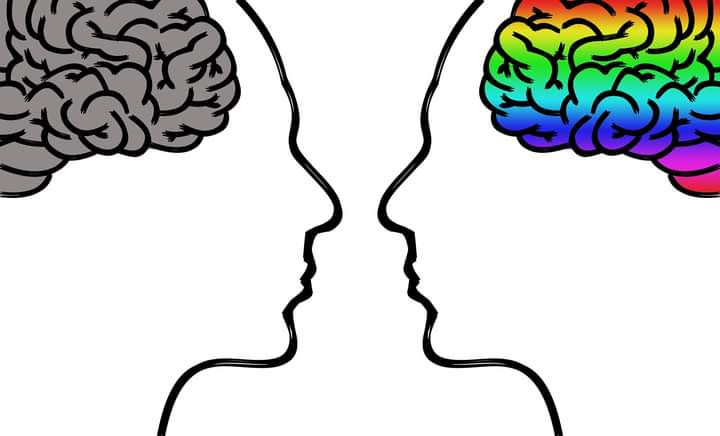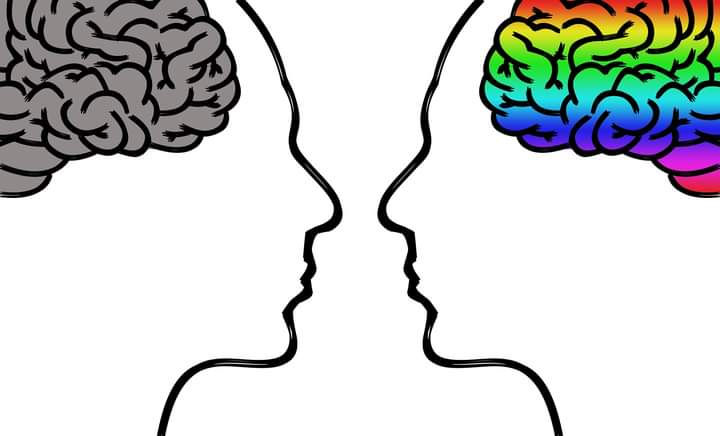Understanding Depression!
- Debora Wiseman
- 6 de set. de 2022
- 3 min de leitura

Understanding Depression!
The word Depression derives from the Latin deprimere, which means “to press, crush, sink”. The most common feeling of a depressed person is the anguish and tightness felt when we think about or are in life situations that upset and sadden us.
According to the World Health Organization, the disease affects more than 300 million people of all ages worldwide. In Brazil, it is estimated that 5.8% of the population is affected by the disease.
Depression sets in and if left untreated, quickly, it can get worse and go through three stages: mild, moderate and severe.
Mild depression can usually be controlled without medication and is treated with therapies and exercise. The moderate and severe levels have the help of drugs to alleviate the symptoms of depression, in addition to therapy and other options to improve the patient's quality of life, prescribed by psychiatrists.
Signs to identify depression
* Frequent sadness and crying, even for no apparent reason;
* Lack of interest in activities that were previously pleasurable;
* Fatigue and exhaustion;
* Excessive self-criticism;
* Concentration problems and frequent memory lapses;
* Headaches, backaches or stomachaches without a physical cause;
* Lack of will to live.
What are the causes of depression?
Like many emotional disorders, depression does not have a single specific cause.
Many factors can influence the development of the problem, such as genetic issues, aspects of the person's life history and social, economic and/or political situations.
In addition to genetic predisposition, other physical conditions can increase the risk of developing depression, such as:
* People facing chronic illness or complex health problems such as cancer or AIDS;
* People who abuse medication or drugs;
* Excessive use of internet and social networks;
* Minority groups and those who suffer physical or psychological violence; Homosexuals, indigenous people, women, prisoners and victims of war situations.
* Children and adolescents victims of sexual abuse or phenomena such as bullying;
* Toxic and abusive relationships;
* Divorce;
Trauma and situations in one's life history can affect mental health and trigger depression.
When the emotions caused by these experiences are not well managed, it is common for the person to enter a state of Depression.
There are some risk factors that can contribute to the development of depression:
Family history
Related psychiatric disorders
chronic stress
chronic anxiety
Hormonal dysfunctions
Overweight
Sedentary lifestyle and unregulated diet
Addictions (cigarettes, alcohol or illicit drugs)
Excessive use of internet and social networks
Physical or psychological trauma
Blows to the head
Heart problems
Marital separation
Chronic diseases
Most common symptoms of depression
Discontent and general dissatisfaction;
Sadness;
Tiredness;
Demotivation;
Sleep change;
Apathy;
Crying spells;
Feelings of worthlessness;
Irritability;
Guilt symptoms;
Decreased sexual desire;
Death thoughts.
Treatments for depression
Follow-up with a psychiatrist and psychologist is essential for the remission of depression.
Almost everyone knows someone who has been diagnosed with depression. The disease is extremely common, but it should not be trivialized. On the contrary, the high frequency with which it occurs is an alert to the need for urgent care with mental health.
To treat depression, there are several conventional and alternative therapeutic options available with excellent scientific evidence. In some people, treatment can lead to the complete disappearance of symptoms and never come back. But in many cases, the disease occurs in cycles of remission and ascension. Therefore, instead of talking about a cure, we talk about the treatment and management of depression.
How to beat depression?
Welcoming and supporting people and family members is a fundamental care strategy for identifying care needs, relieving suffering and planning drug and therapeutic interventions, if and when necessary.
Some patients need maintenance or preventive treatment, which can take years or a lifetime, to prevent new episodes from appearing.
Psychotherapy helps in the psychological restructuring of the individual, in addition to increasing their understanding of the depression process and conflict resolution, which reduces the impact caused by stress.
Depression has no time to pass. It can last for days, weeks, months or years.
The person in crisis, after overcoming this disorder, can also, at any time, experience new episodes of depression.
Most of the time, treatment for depression is done by combining psychiatrist, psychotherapy and alternative therapies, helping in this difficult process.
* Seek help from professionals such as competent doctors and therapists when you experience difficulty understanding or dealing with the situation, feeling or thought.
IMPORTANT: We are Holistic Therapists and our treatment is alternative. Even with satisfactory results, it is essential to emphasize that only duly qualified doctors can diagnose diseases, indicate treatments and prescribe medication.
We wish you all the best.
See you next week
Shalom!
Debora and Daniel Wiseman





Comentários